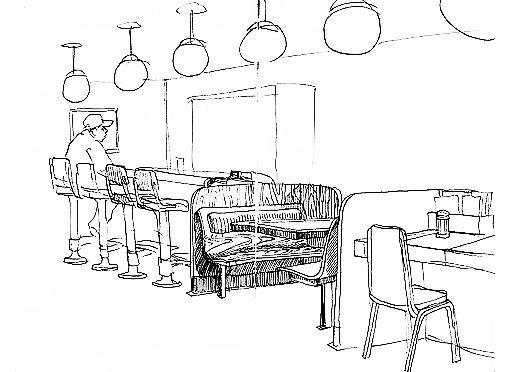September 9th, 9:18 A.M.—Hurricane Irma is making landfall in less than 24 hours. Anxiety fumes are in the air—you could light a match and the room go up in flames.
I’m in a Holiday-Inn lobby. This place is overrun with people. The desk clerk tells me that most guests are evacuees from south and central Florida.
In the main area: televisions are playing—volume cranked high. A few families gather around screens with worried faces.
I meet a Miami man.
“I’m pretty stressed right now,” he says. “We’re crammed in two rooms. My mother’s eighty-three, man. She don’t travel well.”
If the hurricane hits where forecasts predict, he’ll lose his home and his business.
He goes on, “I worked eight years finding new clients. All those twelve-hour workdays, my livelihood is gonna disappear.”
He snaps his fingers.
“This is my wakeup call, dude,” he adds. “I’ve spent too much time with my business, not enough time with my son.”
I meet a woman. Late sixties, wiry, with white cropped hair.
“Lost my husband two months ago to cancer,” she says. “And this hurricane might
destroy our house, where we raised our kids.”
A few weeks ago, she started riding a bike to help fight depression. She brought the bike with her to help release nervous energy.
“I told God this morning,” she says. “Go ahead, take my house. It's all just stuff anyway. I'm just grateful to have my kids with me this weekend.”
I meet a man with a long beard. He is six-four, and roughly the size of a General Electric refrigerator. His family lives in Central Florida.
“I'm with my wife and son,” he says. “But my mama and baby sister are evacuating now, they're still stuck traffic.”
He shows me a cellphone photo of a traffic jam.
“My sister’s freaking out,” he says. “She’s twelve. I try to tell her funny stories to make her laugh.”
His…







